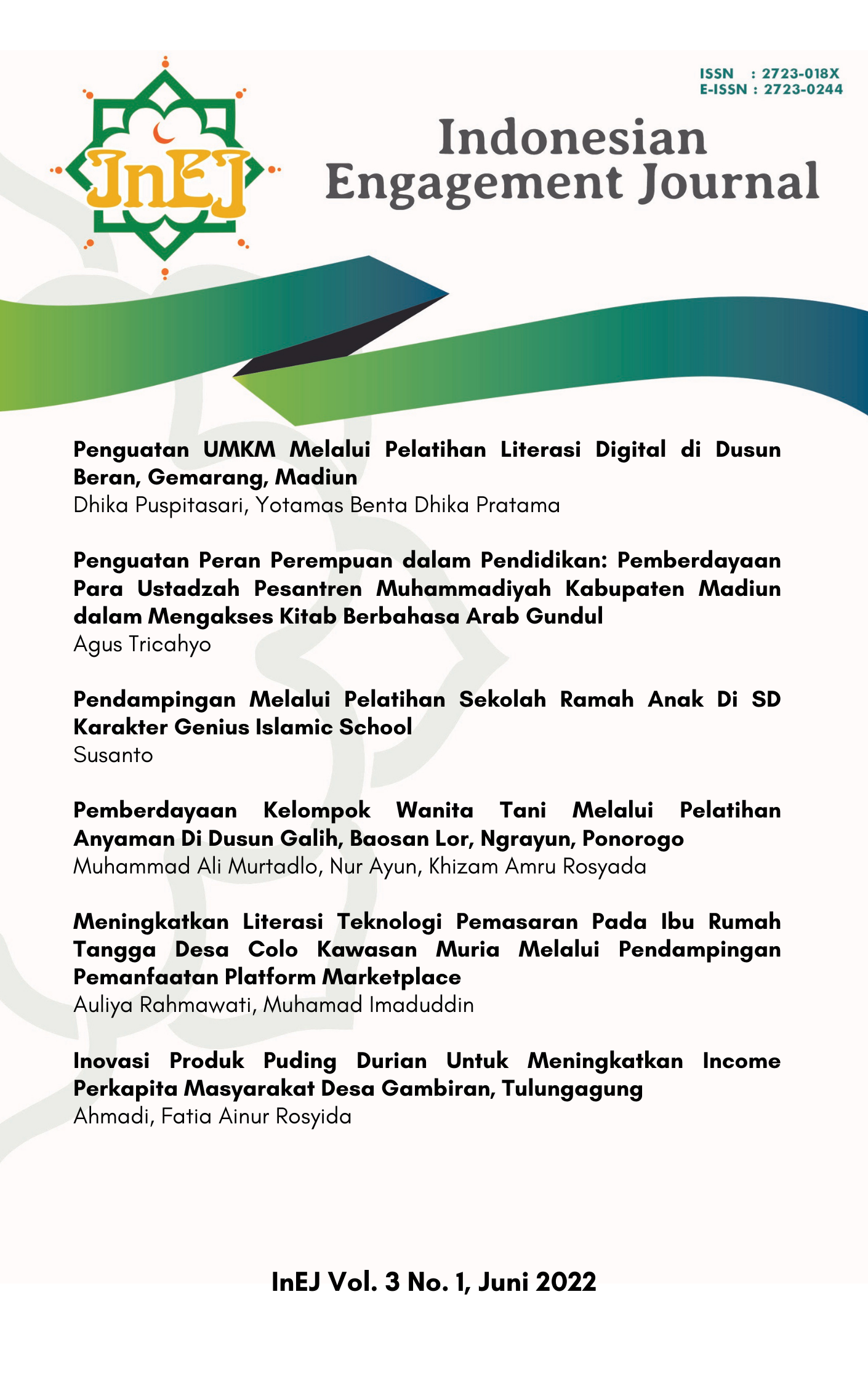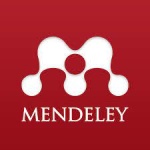PENDAMPINGAN MELALUI PELATIHAN SEKOLAH RAMAH ANAK DI SD KARAKTER GENIUS ISLAMIC SCHOOL
DOI:
https://doi.org/10.21154/inej.v3i1.4959Keywords:
Pendampingan, Pelatihan, Sekolah Ramah Anak, Genius Islamic SchoolAbstract
Seiring dengan tingginya kasus pelanggaran terhadap anak di satuan pendidikan, model sekolah ramah anak merupakan solusi untuk pencegahan segala bentuk pelanggaran terhadap anak. SD Karakter Genius Islamic School Kota Depok memiliki beragam potensi yang memadai yang dapat dikembangkan untuk penerapan model sekolah ramah anak. Pemilihan sekolah ini berdasarkan pertimbangan sebagai berikut; pertama, komitmen kepemimpinan yang memadahi dan inovatif; kedua, kompetensi pendidik dan tenaga kependidikan sangat mendukung; ketiga, nilai-nilai dan kultur sekolah berbasis karakter, sehingga relevan dengan penerapan model sekolah ramah anak. Pengabdian ini menggunakan pendekatan Asset Based Community Development (ABCD). Adapun langkah-langkah pendampingan program ini meliputi: 1) observasi lingkungan sekolah, 2) koordinasi pimpinan sekolah, 3) pelatihan penerapan model sekolah ramah anak, 4) pelaksanaan program, dan 5) monitoring dan evaluasi. Sedangkan penerapan model sekolah ramah anak mengacu pada 6 (enam) indikator yaitu aspek kebijakan, pendidik dan tenaga kependidikan, proses pembelajaran, partisipasi anak, sarana dan prasarana serta partisipasi orangtua.References
Fitriani, S. (2020). Promoting Child-Friendly School Model through School Committee as Parents' Participation. International Journal of Evaluation and Research in Education, 9(4), 1025”“1034.
Green, G. P., & Haines, A. (2015). Asset building & community development. Sage publications.
Hillis, S. D., Mercy, J. A., & Saul, J. R. (2017). The Enduring Impact of Violence Against Children. Psychology, Health & Medicine, 22(4), 393”“405.
Suharjuddin, S., & Markum, M. (2021). Child-Friendly School Policy with Children's Rights Approach in Bekasi City. Jurnal Studi Guru Dan Pembelajaran, 4(2), 387”“397.
Susanto, S. (2022). Child-Friendly School Policy in the Perspective of Islamic Education Teachers in Indonesia. Al Qalam, 39(1), 13”“24.
Tapia-Fonllem, C., Fraijo-Sing, B., Corral-Verdugo, V., Garza-Terán, G., & Moreno-Barahona, M. (2020). School Environments and Elementary School Children's Well-Being in Northwestern Mexico. Frontiers in Psychology, 11, 510.
Thomas, E. D. (2022). Examining the Interaction Between Potentially Morally Injurious Events and Religiosity in Relation to Alcohol Misuse Among Military Veterans. Journal of Traumatic Stress, 35(1), 314”“320. https://doi.org/10.1002/jts.22682
Wuryandani, W., Faturrohman, F., Senen, A., & Haryani, H. (2018). Implementasi Pemenuhan Hak Anak Melalui Sekolah Ramah Anak. Jurnal Civics: Media Kajian Kewarganegaraan, 15(1), 86”“94.
Yosada, K. R., & Kurniati, A. (2019). Menciptakan Sekolah Ramah Anak. Jurnal Pendidikan Dasar Perkhasa: Jurnal Penelitian Pendidikan Dasar, 5(2), 145”“154.
Downloads
Published
Issue
Section
License
Please find the rights and licenses in InEJ. By submitting the article/manuscript of the article, the author(s) agree with this policy. No specific document sign-off is required.1. License
The non-commercial use of the article will be governed by the Creative Commons Attribution license as currently displayed on Creative Commons Attribution-NonCommercial-ShareAlike 4.0 International License.
2. Author(s)' Warranties
The author warrants that the article is original, written by stated author(s), has not been published before, contains no unlawful statements, does not infringe the rights of others, is subject to copyright that is vested exclusively in the author and free of any third party rights, and that any necessary written permissions to quote from other sources have been obtained by the author(s).
3. User/Public Rights
The spirit of InEJ is to disseminate articles published are as free as possible. Under the Creative Commons license, InEJ permits users to copy, distribute, display, and perform the work for non-commercial purposes only. Users will also need to attribute authors and InEJ on distributing works in the journal and other media of publications. Unless otherwise stated, the authors are public entities as soon as their articles got published.
4. Rights of Authors
Authors retain all their rights to the published works, such as (but not limited to) the following rights;
Copyright and other proprietary rights relating to the article, such as patent rights,
The right to use the substance of the article in own future works, including lectures and books,
The right to reproduce the article for own purposes,
The right to self-archive the article,
The right to enter into separate, additional contractual arrangements for the non-exclusive distribution of the article's published version (e.g., post it to an institutional repository or publish it in a book), with an acknowledgment of its initial publication in this journal (InEJ: Indonesian Engagement Journal).
5. Co-Authorship
If the article was jointly prepared by more than one author, any authors submitting the manuscript warrants that he/she has been authorized by all co-authors to be agreed on this copyright and license notice (agreement) on their behalf, and agrees to inform his/her co-authors of the terms of this policy. InEJ will not be held liable for anything that may arise due to the author(s) internal dispute. InEJ will only communicate with the corresponding author.
6. Royalties
Being an open accessed journal and disseminating articles for free under the Creative Commons license term mentioned, author(s) aware that InEJ entitles the author(s) to no royalties or other fees.
7. Miscellaneous
InEJ will publish the article (or have it published) in the journal if the article’s editorial process is successfully completed. The editors of Journal may modify the article to a style of punctuation, spelling, capitalization, referencing and usage that deems appropriate. The author acknowledges that the article may be published so that it will be publicly accessible and such access will be free of charge for the readers as mentioned in point 3.




